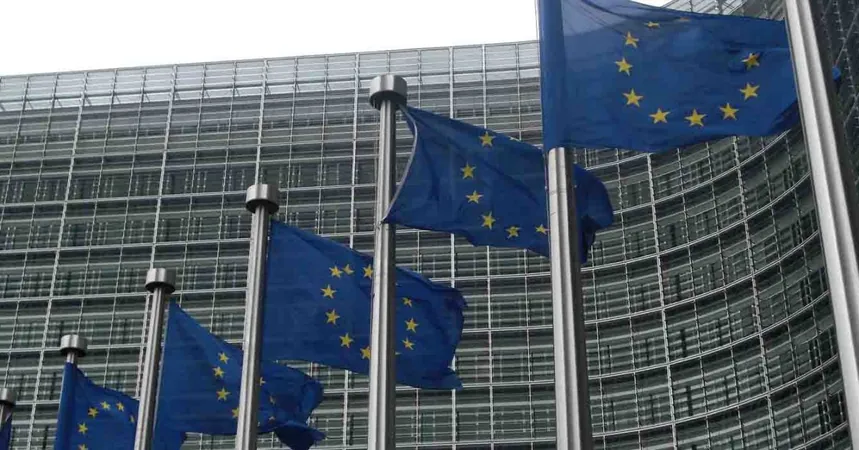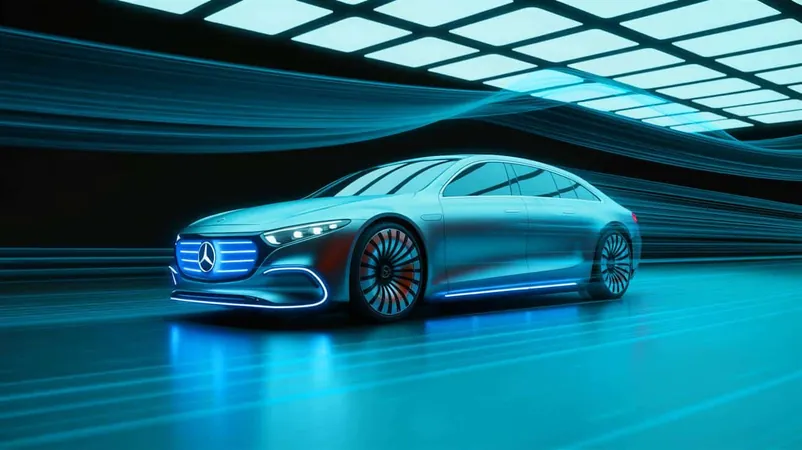
Europe Stands Firm Against Automakers' Pleas to Delay EV Transition
2025-09-14
Author: Jessica Wong
European Automakers Push for a Delay
European automakers are urgently petitioning the EU Commission to reassess its ambitious 2035 target for an all-electric vehicle market. During a recent auto summit, industry leaders expressed concerns about the pace of their transition to electric vehicles (EVs), but the EU appears unwavering in its commitment to this key climate goal.
The Shifting Landscape of EV Markets
Back in 2021, Europe established the goal to transition completely to electric vehicles by 2035 as part of a broader initiative to cut CO2 emissions by 55% by 2030, achieving climate neutrality by 2050. However, the automotive landscape has dramatically shifted since then. While European EV sales have climbed, the surge in Chinese EV sales—escalating from just 5% to a staggering 47% market share in a few short years—shows a new level of competition that European manufacturers are struggling to match.
Automakers' Desperate Appeals
At the summit, which followed the prominent IAA Munich auto show, automakers engaged in what many have labeled a "crisis meeting" to secure leniency on CO2 targets and extend the life of traditional combustion engines. Although the EU is scheduled to review its 2035 goals, it remains steadfast about the inevitability of an electric future.
The Reality Check from China
China's remarkable growth in the EV sector starkly contrasts Europe's struggles. Between 2020 and 2024, European automakers increased their plug-in market share from 11% to only 24%, while China escalated from 5% to 47%. This dramatic disparity highlights the need for European automakers to step up their game rather than plead for extensions.
Environmental Impacts of Delaying the Transition
As automakers advocate for more time, the environmental consequences grow dire. The EU has already granted some leeway earlier this year, extending compliance deadlines for the 2025-2027 model years. Ironically, this kind of leniency translates to more pollution for consumers and contradicts the urgent need to address climate change.
The Case Against Combustion Fuels
Some automakers are lobbying for the continuation of combustion engines under the guise of 'clean fuels' like biofuels and e-fuels, but scientific evidence suggests these alternatives are not a genuine solution. Recent studies reveal that plug-in hybrids, which are often touted as environmentally friendly, can emit significantly more emissions in real-world scenarios than in testing environments.
Industry Leaders Divided
Notably, some industry executives are beginning to voice more progressive views. Audi CEO Gernot Döllner stated that electric vehicles are the best technology for reducing CO2 emissions and advancing automotive innovation. Conversely, Mercedes CEO Ola Källenius, representing the European Automobile Manufacturer’s Association, suggested that hybrids should remain part of the mix, despite evidence suggesting they complicate emissions reductions.
Acknowledging the Competition
The rise of Chinese EV manufacturers presents a stark warning for European automakers. Despite existing tariffs, Chinese EVs offer compelling value and often outmatch European competitors in technology and performance. Instead of denying the challenges posed by these competitors, the EU needs to stay the course in promoting electric vehicles.
The Urgent Need for Accelerated Action
While some call for a review of the 2035 target, the consensus is that we need to work faster, not slower, to combat climate change. Delaying the transition only results in greater costs and repercussions for humanity and the planet. The EU Commission's resolve to maintain its targets highlights the necessity for a robust commitment to electric vehicles as the key to confronting the pressing climate crisis and ensuring a sustainable future.



 Brasil (PT)
Brasil (PT)
 Canada (EN)
Canada (EN)
 Chile (ES)
Chile (ES)
 Česko (CS)
Česko (CS)
 대한민국 (KO)
대한민국 (KO)
 España (ES)
España (ES)
 France (FR)
France (FR)
 Hong Kong (EN)
Hong Kong (EN)
 Italia (IT)
Italia (IT)
 日本 (JA)
日本 (JA)
 Magyarország (HU)
Magyarország (HU)
 Norge (NO)
Norge (NO)
 Polska (PL)
Polska (PL)
 Schweiz (DE)
Schweiz (DE)
 Singapore (EN)
Singapore (EN)
 Sverige (SV)
Sverige (SV)
 Suomi (FI)
Suomi (FI)
 Türkiye (TR)
Türkiye (TR)
 الإمارات العربية المتحدة (AR)
الإمارات العربية المتحدة (AR)